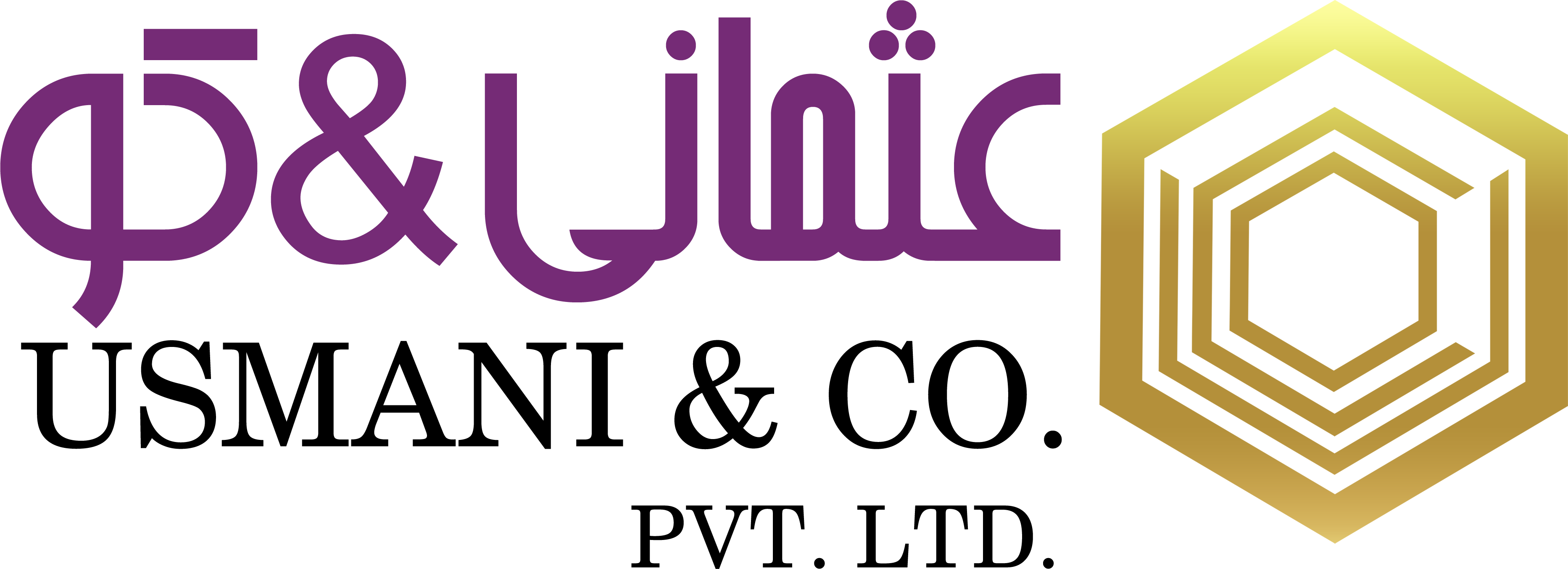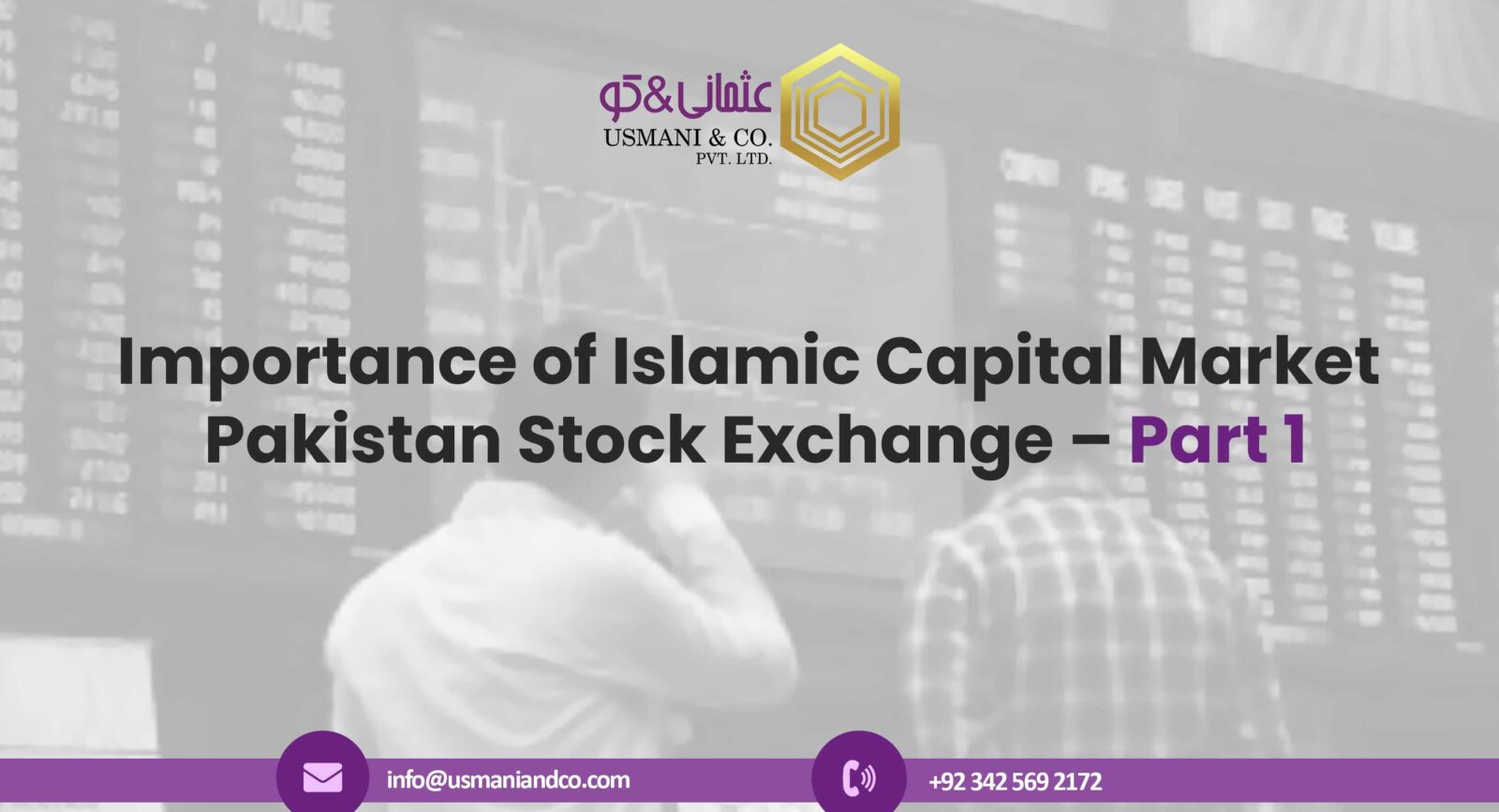The concept of Islamic finance can be traced back to about 1400 years, but its recent history can be tracked back to the 1970s, when Islamic banks were founded in Saudi Arabia and United Arab Emirates where basic financing solutions such as savings and financing were provided. These products were ensured that they are Shariah-compliant, and the general public was able to comprehend them easily. In the 1980s, need for Islamic financial products prevailed and project financing was in high demand. Ijara and Equity were introduced in the 1990s, while in 2000s, Sukuk, Structured Alternative Assets, Liquidity management tools were further explored.
Pakistan is one of the few emerging economies that has begun to Islamize monetary and the financial system of the country in the early 1980s. The Supreme Court of Pakistan on November 14th, 1991 declared the bank’s interest as “Riba” and banned all kinds of interest prevailing in Pakistan’s monetary and financial system. The study of Islamic Finance, with its core aim to counter Riba, has opened avenues for much research in this field.

“And Allah has permitted trade and forbidden Riba” [Al Baqara 275]
Islamic Finance is a combination of traditional Islamic financial institutions and Shariah-compliant commercial financial institutions such as:
- Islamic Capital Markets
- Islamic Banks and Takaful
- Islamic Microfinance Institution
- Zakat Institution
- Waqf Institution
Our focus for today’s discussion is Islamic Capital Market which is part of a financial system that is concerned with raising capital by dealing in shares, bonds and other long-term investments. Capital markets are considered an integral part of the modern financial system. They offer investors the opportunity to invest in productive ventures that contribute to economic growth. Islamic capital market as part of the larger Islamic financial industry is one of the innovations developed by Islamic scholars to enable harmony between the modern capitalist world and Islamic traditions. The Islamic capital market is small compared to the Islamic banking sector, but is growing in many jurisdictions as the number of Islamic investors are increasing around the world
One of the main components of the capital market is the equity market, commonly known as the stock market. The Stock Exchanges provide a market where investors can buy and sell stocks / securities. The role of an exchange is to monitor the market and ensure that it operates efficiently, fairly and transparently.
Islamic capital market aims to improve the trust and attention of Muslim investors so that their investments can reap economic benefit. Since the prohibition of RIBA (generally interpreted as interest) is impermissible in Sharia, interest-based instruments like traditional bonds are considered SHARIA NON-COMPLIANT and cannot be included in Islamic Investment portfolio. In contrast, as profit-loss sharing is one of the basic tenants of Islamic Finance, equity-based investments, such as stocks are encouraged. The rulings (Fatawa) of Shariah Scholars gives confidence to a Muslim investor and encourages him to participate in investment activities without compromising on his religious beliefs.
The basic concept of the stock market is allowed under Shariah. However, there are certain conditions that must be met before investing in the stock market. As a general rule, no investment can be made in unethical business or activities, or RIBA based products. For example, Conventional Banks, Insurance and Tobacco companies. Stocks can either be Shariah compliant or non-compliant. Various criterion has been developed by the scholars to screen any stocks eligibility for investment. In qualitative screening, the stock is investigated based on activities of sector and excludes non-Shariah business activities from the light of Shariah. Finance Screening criteria exclude companies with unacceptable levels of debt, liquidity, and interest-based Investment and / or income that is not Shariah compliant. Because investment is sensitive to interest rates (Riba) the goal of quantitative screening is to separate business revenue from revenue related to interests.
The purpose of Sharia Financial Screening Indices is to exclude companies with unacceptable levels of interest-based debt and investments, liquidity, and / or impure returns. From an Islamic finance point of view, a company must not borrow on interest rates, invest in debt certificates, or earn income from other activities prohibited by Shariah. However, such restrictions will remove most, if not all, stocks available on the market, even those listed on Islamic countries. Based on this condition, Shariah scholars sought to publish a series of Shariah indexes to be tested on existing companies to classify them as Shariah-compliant companies.
For the development of Islamic Banks and Finance, the Government of Pakistan had appointed a Steering Committee in December 2013, led by Dr Imran Ashraf Usmani, Vice Chairman of Shariah Supervisory Board of Meezan Bank Ltd and President and CEO of Usmani and Co. Shariah Advisor. Furthermore, for the development of Islamic Capital Market a sub-committee was also set up in March 2014 to promote the Islamic capital markets.
The sub-committee started development of Pakistan’s All Share Islamic Index which consists of all Shariah compliant companies listed on the Pakistan Stock Exchange. One of the Screening Methodology developed by the sub-committee was Karachi Meezan Index – 30 (KMI -30) which is being implemented in Pakistan Stock Exchange. The purpose of the KSE Meezan Index (KMI 30 Index) is to serve as a benchmark for measuring the performance of Shariah-compliant equity investments. The criterion of this index follows:
Meezan Islamic Market Index Criteria
- Business of the Investee Company: The basic business of the investee company should be Halal.
- Debt to Total Assets: The interest-bearing debt of the investee company should not exceed 37% of total assets.
- Illiquid Assets to Total Assets: Total illiquid assets of the Investee company as a percentage of total assets should be at least 25%. These are tangible assets apart from cash and cash equivalents.
- Investment in Shariah Non-Compliant Activities: Total investment of the investee company in Shariah non-compliant business should not exceed 33% of total assets. Sometimes companies make investments which are not shariah compliant, it needs to be evaluated that the total investment of the investee company should not exceed 33% of total assets. The basis of this control is the famous hadith where the Prophet advised Abu Bakr not to donate more than one-third of his wealth and commented that “One third is too much”.
- Income from Shariah Non-Compliant Investments: The income from Shariah non-compliant investments should not exceed 5% of gross revenues of the investee company. If a company is earning less than 5% non-complaint income, then that is allowed. This is regarding the evaluation allowed to invest in that company needs to be given into charity and is called purification of income. A Muslim is not allowed to have even a single penny of non-complaint income earned by any source of the investee company in its portfolio. In Pakistan the method is that non-compliant income is divided by the gross revenue of the company to arrive at the charity rate. The Charity rate is then multiplied with the dividend income received by the company to arrive at the amount that is necessary to be given away as charity and thereby purifying one’s earnings. In context of equity investment according to Shariah standards it is obligatory to eliminate prohibited income that is mixed up with the earnings of the company and this obligation is on the one who is the owner of the shares. Elimination is not obligatory for the intermediary, agent or manager of the stock.
In case of Fund Management, it is the responsibility of the Management Company to eliminate the prohibited income. According to Shariah Standards for the determination of the percentage of prohibited income the recourse should be the last verified financials position. This is included in the standard operating procedure of the management of the Islamic investment fund.
- Net Liquid Assets vs. Share Price: The net liquid assets per share should be less than the market price of the share, where a share represents liquid assets as well as illiquid assets and the difference of the two gives us net liquid assets. Discounting of the face value of cash present in the organization is Riba.
- Other criteria to include any company in KMI 30 index or KMI all share index of technical filters: Once a universe is being established it is then shared by the Pakistan Stock Exchange Management who will perform the technical filtration of these stocks to come up with a list of final KMI eligible securities and then they issue a notice to the general public, and they recompose these Islamic indices. During a year the stocks are recomposed twice.
Details of Islamic Capital Market taken from a webinar presented by
Mr Farhan ul Haq Usmani
Executive Vice President and Head of Shariah Audit
Meezan Bank
Written by:
Sadaf Sawant
Senior Manager Shariah Advisory
Usmani and Co.
Jamia Dar Ul Uloom, Karachi



